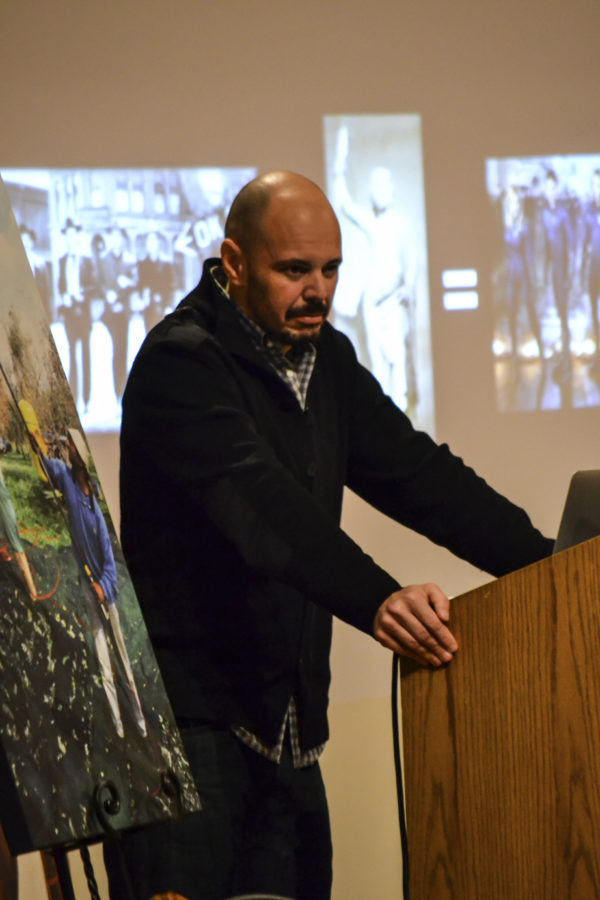Italian comics imitate real acts of heroism
Italian author Fabio Geda describes the nature of comic book heroes in the Italian culture
Most people in the United States are familiar with caped crusaders. Embracing the escapades of Superman, Spiderman and the like comes naturally because most of us are exposed at a young age to their endeavors. DC and Marvel are constantly pitted against each other in hopes of releasing the next blockbuster. You can see the bat symbol emblazoned left and right while walking down the clothing aisles of Walmart. Superheroes are a hallmark in our part of the world, but what about the rest of this little sphere?
Fabio Geda, accomplished author and speaker, representing his home town of Turin for the Italy semester, took time to shed some light on the Italian comic industry with his presentation “No country for Superheroes: A short history of comics in Italy.”
“My mother, waiting for me to be born, had drawn Donald Duck, Pluto and Goofy on the wall of my room, just over my bed,” Geda said, “and I have the memory of myself as an infant, not able to read yet, lying down on my bed flipping through the pages of a Topelino [Mickey Mouse] comic. I was born in a house full of comics; that is a great life for a kid because I didn’t have to implore my parents to buy me one on Sunday morning because my father bought them for himself. I was entitled to read them.”
The most popular comic character in Italy is a cowboy named Tex Wheeler. Tex’s adventures sell over 200,000 copies annually. Cowboys, pirates and Vikings tend to take center stage. The logic of these characters feels like Alan Moore’s Watchmen: supers are so commonplace that tales of realistic heroism tend to fill the panels instead.
“The comics my father read were typical European comics,” Geda said. “In the European comic tradition, there are no superheroes. No flying men of steel coming from another planet. No mutants. No men able to cling to ceiling and quickly react to danger thanks to their spider-sense. Incredibly strong man. Incredibly brave man. Incredibly smart man. But nothing close to the typical North American concept of a superhero.”
Geda’s presentation covered the evolution of comics in Italy, dating back to the 16th century where the first use of word bubbles appeared. The US has had a teetering impact over the years, which waned significantly before returning after fascist rule during the 40s.
Characters such as Asterix & Obelisk, the Phantom and Tex Wheeler are prevalent because they follow the Italian hero archetype: strong, smart and brave, but not invincible. The reason behind this, Geda implies, is due to Europe’s rich history of mythology. When the stories you grow up with involve invincible heroes, you tend to gravitate towards real acts of heroism.
Your donation will support the student journalists of Missouri Southern State University. Your contribution will allow us to purchase equipment and cover our annual website hosting costs.




























